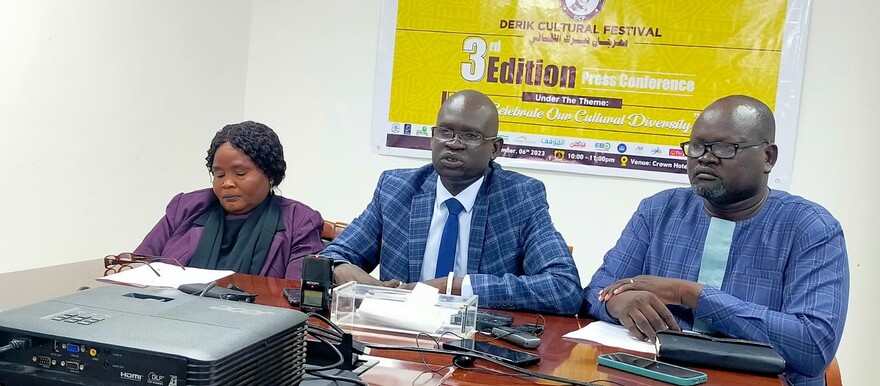The organizing committee for the Derik Cultural Festival announced Monday that the third edition of the event will kick off this week with musician Emmanuel Kembe as personality of the year.
The Derik Cultural Festival is an annual event that takes place every year in memory of the late artist Derik Uyai Alfred who was an artist, former minister in Western Bahr el Ghazal, founder of Kuwato Cultural Group, and who also contributed to the establishment of the first museum in Western Bahr el Ghazal state.
Addressing a news conference in Juba, Atem Simon, the president of the Derik Cultural Festival, said this year’s edition is a continuation of the projects initiated by the late Uyai, to ensure that culture is an essential element in the progress and advancement of nations.
According to Atem, the theme this year is “Celebrating our cultural diversity” and the festival aims to shed light on South Sudanese culture.
“The organizing committee agreed that artist Emmanuel Kembe will be the personality of this year’s edition of the festival in recognition of his selfless efforts and huge contributions to improving our music while presenting it in a way that promotes awareness and national messages,” he said. “The projects that Emmanuel Kembe has initiated shall continue as moments of enlightenment and a luminous development in our modern and contemporary history.”
Atem said the festival will start on 10 November at the University of Juba and the functions will continue for eight days. The festivities include a tourism trip to Terekeka in collaboration with the Central Equatoria State Ministry of Culture, Sport, and Youth, the Ministry of Culture and Tourism, and the National Ministry of Tourism and Wildlife Conservation.
The Late Uyai was born in 1962 in Wau, Western Bahr al-Ghazal State where he attended primary and secondary education. He later joined the Higher Institute of Arts and Theater in Khartoum and became the director of the Kuwato Cultural Center and Troupe.
Kuwato is a cultural group that was formed in Khartoum as a model for a theatre and called for peace and peaceful coexistence between the Sudanese society in the north and south.
He was later appointed the Western Bahr el Ghazal State Minister of Culture, Information, and Communication following South Sudan’s independence in 2011 and then served as a commissioner of the Arts Commission from 2012-2016.




